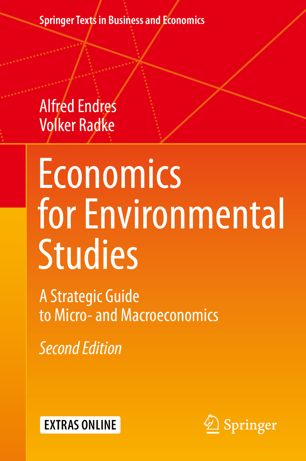

Most ebook files are in PDF format, so you can easily read them using various software such as Foxit Reader or directly on the Google Chrome browser.
Some ebook files are released by publishers in other formats such as .awz, .mobi, .epub, .fb2, etc. You may need to install specific software to read these formats on mobile/PC, such as Calibre.
Please read the tutorial at this link: https://ebookbell.com/faq
We offer FREE conversion to the popular formats you request; however, this may take some time. Therefore, right after payment, please email us, and we will try to provide the service as quickly as possible.
For some exceptional file formats or broken links (if any), please refrain from opening any disputes. Instead, email us first, and we will try to assist within a maximum of 6 hours.
EbookBell Team

4.0
76 reviewsThis textbook provides a concise introduction to micro- and macroeconomics and demonstrates how economic tools and approaches can be used to analyze environmental issues. Written in an accessible style without compromising depth of the analysis, central issues in the public policy debate on environmental problems and environmental policy are discussed and analyzed from an economics perspective. The book is meant as an introductory (and in some parts intermediate) text for undergraduate students in environmental sciences without a background in economics. It also serves as a companion for economists interested in a presentation of the micro and macro foundations of environmental economics, in a nutshell.
The second edition has been revised, updated and extended in may ways, for instance by adding a microeconomic section on environmental technical change, a discussion of the significance of technical change for a sustainable development and a considerably extended macroeconomic section on economic growth.